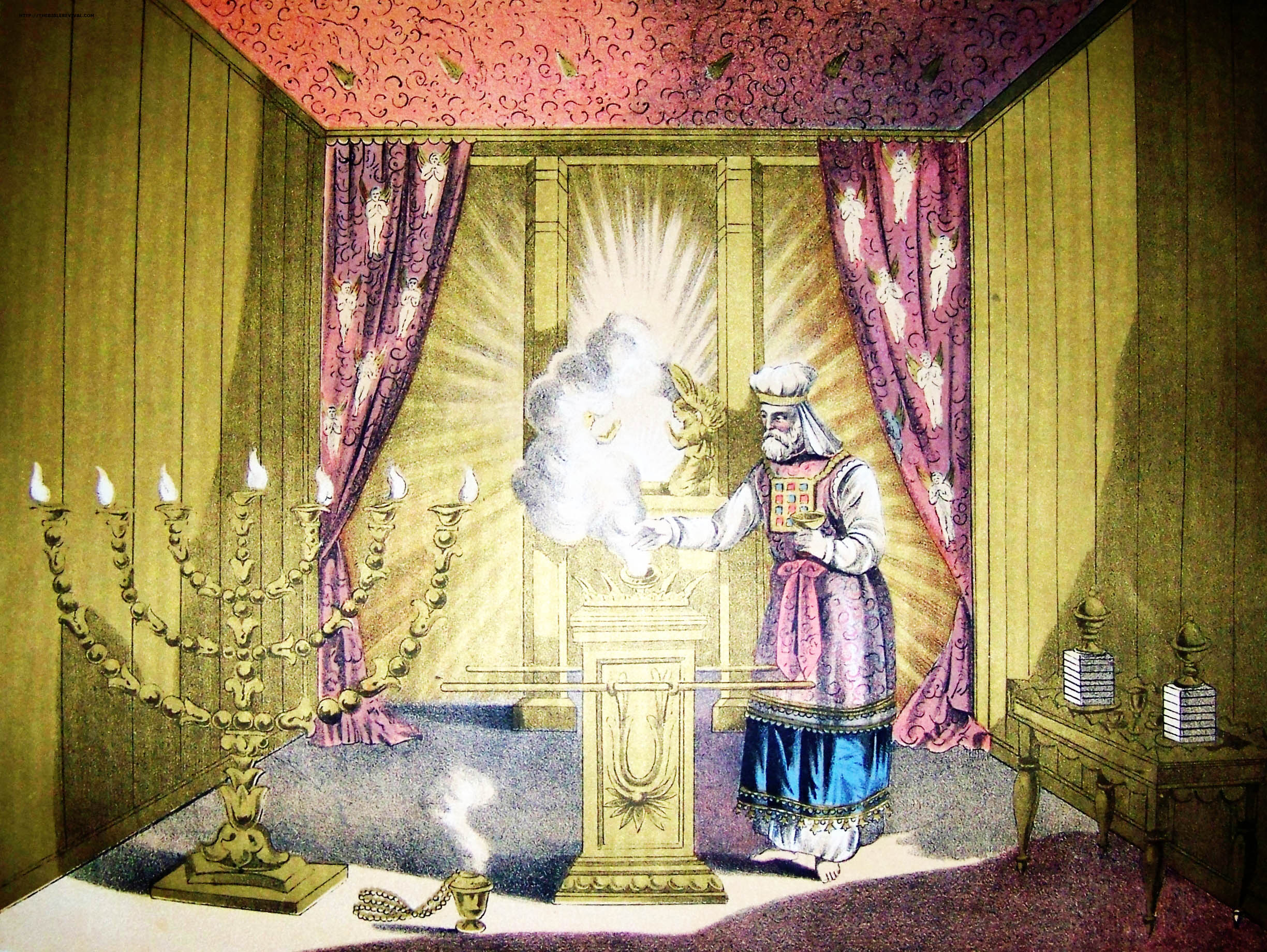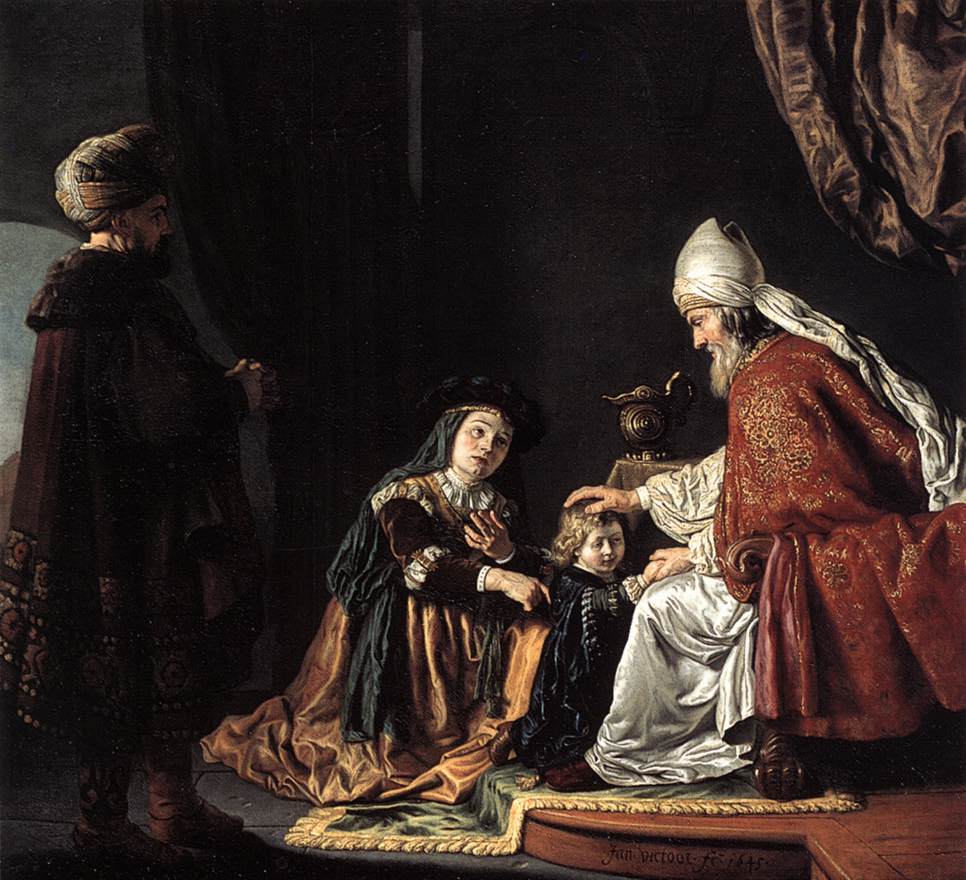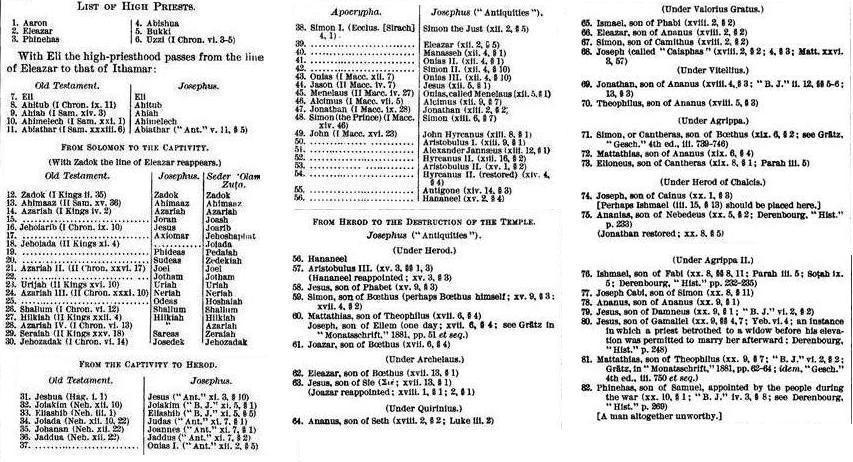|
Ahitub (father Of Zadok)
Ahitub ( ''’'' or ''’'' 'my brother is goodness') may refer to the following people in the Bible: * Ahitub (High Priest), High Priests of Israel, son of Phinehas, grandson of Eli * Ahitub, father of Zadok, grandson of Meraioth * Ahitub, grandson of Azariah, a priestly descendant through the priestly line of the first Zadok, mentioned in 1 Chronicles 6:11-12. this Ahitub also had a son (or probably grandson) by the name of Zadok. This Ahitub may have been high priest in the later time of the kings, but he also may not have been a high priest. He did become the ancestor of later high priests, which served during the fall of Jerusalem Jerusalem (; he, יְרוּשָׁלַיִם ; ar, القُدس ) (combining the Biblical and common usage Arabic names); grc, Ἱερουσαλήμ/Ἰεροσόλυμα, Hierousalḗm/Hierosóluma; hy, Երուսաղեմ, Erusałēm. i ... and post-exile. * Ahitub, an ancestor of a person mentioned in Nehemiah 11:11. This person migh ... [...More Info...] [...Related Items...] OR: [Wikipedia] [Google] [Baidu] |
Bible
The Bible (from Koine Greek , , 'the books') is a collection of religious texts or scriptures that are held to be sacred in Christianity, Judaism, Samaritanism, and many other religions. The Bible is an anthologya compilation of texts of a variety of forms originally written in Hebrew, Aramaic, and Koine Greek. These texts include instructions, stories, poetry, and prophecies, among other genres. The collection of materials that are accepted as part of the Bible by a particular religious tradition or community is called a biblical canon. Believers in the Bible generally consider it to be a product of divine inspiration, but the way they understand what that means and interpret the text can vary. The religious texts were compiled by different religious communities into various official collections. The earliest contained the first five books of the Bible. It is called the Torah in Hebrew and the Pentateuch (meaning ''five books'') in Greek; the second oldest part was a coll ... [...More Info...] [...Related Items...] OR: [Wikipedia] [Google] [Baidu] |
Ahitub (High Priest)
Ahitub ( ''’Aḥiṭub'' or ''’Aḥiṭuv'' 'my brother is goodness') was a High Priest of Israel cited in the Bible. He was the son of Phinehas, grandson of Eli, and brother of Ichabod Ichabod ( he, אִיכָבוֹד ''ʼīyḵāḇōḏ'', – ''without glory'', or "''where is the glory?''") is mentioned in the first Book of Samuel as the son of Phinehas, a malicious priest at the biblical shrine of Shiloh, who was born on t .... On the death of his grandfather Eli he most likely succeeded to the office of High Priest of Israel, and would have been succeeded by his son Ahijah (references to Ahitub as the father of Ahijah are in 1 Sam. 14:3; 22:9, 11, 12, 20 and 1 Chr 9:11). Ahijah (also spelled Ahiah), who is listed as his son i1 Samuel 14:2-3, 18-19 may have been the same person as Ahimelech1 Samuel 22:9-20, or he may have been another son of Ahitub (probably an elder son if this was the case). References {{High Priests of Judaism 11th-century BCE High ... [...More Info...] [...Related Items...] OR: [Wikipedia] [Google] [Baidu] |
High Priest Of Israel
High Priest ( he, כהן גדול, translit=Kohen Gadol or ; ) was the title of the chief religious official of Judaism from the early post- Exilic times until the destruction of the Second Temple in Jerusalem by the Romans in 70 CE. Previously, in the Israelite religion, including during the time of the kingdoms of Israel and Judah, other terms were used to designate the leading priests; however, as long as a king was in place, the supreme ecclesiastical authority lay with him. The official introduction of the term "high priest" went hand-in-hand with a greatly enhanced ritual and political significance bestowed upon the chief priest of the Israelites in the post-Exilic period, especially from 411 BCE onward due to the religious transformations brought about during the time of the Babylonian captivity and due to the lack of a Jewish king and kingdom. The high priests belonged to the Jewish priestly families that trace their paternal line back to Aaron—the first high priest ... [...More Info...] [...Related Items...] OR: [Wikipedia] [Google] [Baidu] |
Hophni And Phinehas
Hophni () and Phinehas or Phineas () were the two sons of Eli. The first book of Samuel describes them as the officiating priests at the sanctuary of Shiloh at the time of Hannah. According to Josephus, Phinehas officiated as high priest because Eli had resigned as high priest at Shiloh because of his advanced age. In the biblical narrative, Hophni and Phinehas are criticised for engaging in illicit behaviour, such as appropriating the best portion of sacrifices for themselves, and having sexual relations with the sanctuary's serving women. They are described as "sons of Belial" in () KJV, "corrupt" in the New King James Version, or "scoundrels" in the NIV. Their misdeeds provoked the wrath of Yahweh and led to a divine curse being put on the house of Eli, and they subsequently both died on the same day, when Israel was defeated by the Philistines at the Battle of Aphek near Eben-ezer; the news of this defeat then led to Eli's death (). On hearing of the deaths of Eli and Phineh ... [...More Info...] [...Related Items...] OR: [Wikipedia] [Google] [Baidu] |
Eli (biblical Figure)
Eli (, ; grc, Ἠλί, translit=Ēli; la, Heli) was, according to the Books of Samuel, a high priest and Judge of the Israelites in the city of Shiloh, ancient Israel. When Hannah came to Shiloh to pray for a son, Eli initially accused her of drunkenness, but when she protested her innocence, Eli wished her well. Hannah's eventual child, Samuel, was raised by Eli in the tabernacle. When Eli failed to rein in the abusive behavior of his sons, God promised to punish his family, which resulted in the death of Eli and his sons. Later biblical passages mention the fortunes of several of his descendants, and he figures prominently in Samaritan religious tradition. Biblical narrative Eli was the high priest (''kohen gadol'') of Shiloh, the second-to-last Israelite judge (succeeded only by Samuel) before the rule of the Kings of Israel and Judah. Hannah This story of Hannah, with which the Books of Samuel begin, involves Eli. Hannah was the wife of Elkanah. She was childless. ... [...More Info...] [...Related Items...] OR: [Wikipedia] [Google] [Baidu] |
Zadok
Zadok (or Zadok HaKohen, also spelled Ṣadok, Ṣadoc, Zadoq, Tzadok, or Tsadoq; he, צָדוֹק הַכֹּהֵן, meaning "Righteous, Justified") was a Kohen (priest), biblically recorded to be a descendant from Eleazar the son of Aaron (). He was the High Priest of Israel during the reigns of David and Solomon (). He aided King David during the revolt of his son Absalom, was subsequently instrumental in bringing Solomon to the throne and officiated at Solomon's coronation. After Solomon's building of the First Temple in Jerusalem, Zadok was the first High Priest to serve there (). The prophet Ezekiel extols in the book attributed to him the sons of Zadok as staunch opponents of paganism during the era of pagan worship and indicates their birthright to unique duties and privileges in the future temple (). Hebrew Bible The Tanakh (Hebrew Bible) states that Zadok was a patrilineal descendant of Eleazar the son of Aaron the high priest. (2 Samuel 8:17; 1 Chronicles 24:3) T ... [...More Info...] [...Related Items...] OR: [Wikipedia] [Google] [Baidu] |
Azariah
Azariah ( ''‘Ǎzaryāh'', " Yah has helped") is the name of several people in the Hebrew Bible and Jewish history, including: * Abednego, the new name given to Azariah who is the companion of Daniel, Hananiah, and Mishael in the Book of Daniel () * Azariah (guardian angel), the name given Raphael as companion of Tobias in the Book of Tobit. * Azariah, the guardian angel of Maria Valtorta to whom one of her handwritten books is dedicated * Azariah (prophet), a prophet () * Azariah (high priest) high priest of Israel () * Azariah II, another high priest, in the reign of Uzziah () * Eleazar ben Azariah, the Mishnaic sage * Uzziah, King of Judah, also known as Azariah *Two "commanders of the hundreds" who formed part of Jehoiada's campaign to restore the kingship to Joash in 2 Chronicles 23: Azariah, son of Jeroham and Azariah son of Obed. Other people named Azariah * Azariah Flagg (1790–1873), New York politician * Azariah S. Partridge (1834–1901), Michigan state repre ... [...More Info...] [...Related Items...] OR: [Wikipedia] [Google] [Baidu] |
1 Chronicles 6
1 Chronicles 6 is the sixth chapter of the Books of Chronicles in the Hebrew Bible or the First Book of Chronicles in the Old Testament of the Christian Bible. The book is compiled from older sources by an unknown person or group, designated by modern scholars as "the Chronicler", and had the final shape established in late fifth or fourth century BCE. This chapter focuses on the tribe of Levi, divided into the line of the high priests (verses 1–15); the three lines of the families Gershom, Kohath, and Merari (verses 16–30); the lines of the musicians/singers (verses 31–47); duties of Levites and priests (verses 48–49); list of high priests (verses 50–53) and the Aaronites' and Levites' settlements (verses 54–81). It belongs to the section focusing on the list of genealogies from Adam to the lists of the people returning from exile in Babylon ( 1 Chronicles 1:1 to 9:34). Text This chapter was originally written in the Hebrew language. It is divided into 81 verses in E ... [...More Info...] [...Related Items...] OR: [Wikipedia] [Google] [Baidu] |
Jerusalem
Jerusalem (; he, יְרוּשָׁלַיִם ; ar, القُدس ) (combining the Biblical and common usage Arabic names); grc, Ἱερουσαλήμ/Ἰεροσόλυμα, Hierousalḗm/Hierosóluma; hy, Երուսաղեմ, Erusałēm. is a city in Western Asia. Situated on a plateau in the Judaean Mountains between the Mediterranean Sea, Mediterranean and the Dead Sea, it is one of the List of oldest continuously inhabited cities, oldest cities in the world and is considered to be a holy city for the three major Abrahamic religions: Judaism, Christianity, and Islam. Both Israelis and Palestinians claim Jerusalem as their Capital city, capital, as Israel maintains its primary governmental institutions there and the State of Palestine ultimately foresees it as its seat of power. Because of this dispute, Status of Jerusalem, neither claim is widely recognized internationally. Throughout History of Jerusalem, its long history, Jerusalem has been destroyed at least twice, Sie ... [...More Info...] [...Related Items...] OR: [Wikipedia] [Google] [Baidu] |
.jpg)

_-_Walters_W10617V_-_Full_Page.jpg)



